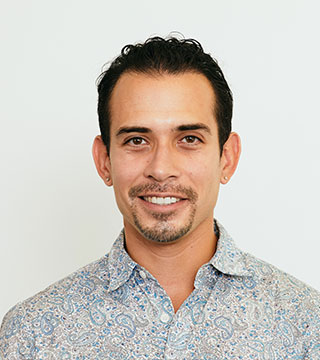
Celso Cardenas
Lead Admissions Coach
Celso Cardenas, the upper school dean at Harvard-Westlake School, a co-educational private school in Los Angeles, has worked most of his professional life with middle- and high school-age students — and he believes there’s great power in listening to teens. “This age group is often times shut out or not listened to just because of their age,” he says. For teens who feel that maybe their parents don’t understand them, or who are having a hard time getting along at school, he strives to be the go-between. “I can help bridge that gap,” he says.
When Cardenas first heard about the Bovard Scholars program, he thought, “This is right up my alley.” Back when he was a college counselor at the Francis W. Parker School, an independent school in Chicago, Illinois, he worked with Chicago Scholars, a like-minded program that helps high-achieving, low-income college students. It “fed his soul” in a particular way, he says. “The most powerful thing is to get [students] to where they want to be.”
As a first-generation college student himself, Cardenas has a lot of personal experience to offer — including navigating the sometimes dramatic cultural shift of being at a big-name school. “Thinking about my own experience, going through the college process at a big public school, without the support of a counselor, faculty or parents at home, and learning to navigate the system on your own, you’re entering into unchartered territory,” he explains. “The idea of having gone through it, I can provide, in some small way, insights into the process of how to acclimate to college life.”
That’s one of the things the Bovard Scholars program has to offer to scholars — a first glimpse at campus life.
For Cardenas, the personal statements are also a vital part of the program — and one of the most fulfilling. “Many times, students come with a draft that is surface-based, a story without much detail and emotion,” he explains. “As coaches we’re going to push them and get them to dig in. We want them to show up on page.”
It can be an intense process, says Cardenas – but one that is leavened by the fact that each group of 10 to 12 students that he works with is going through it together. “It’s a lot of soul-searching in a short amount of time,” he says. But the essays — and the students themselves — are all the better for it.
“I’m motivated by the fact that I didn’t have anything like that,” says Cardenas. “That’s what keeps me coming back.”


